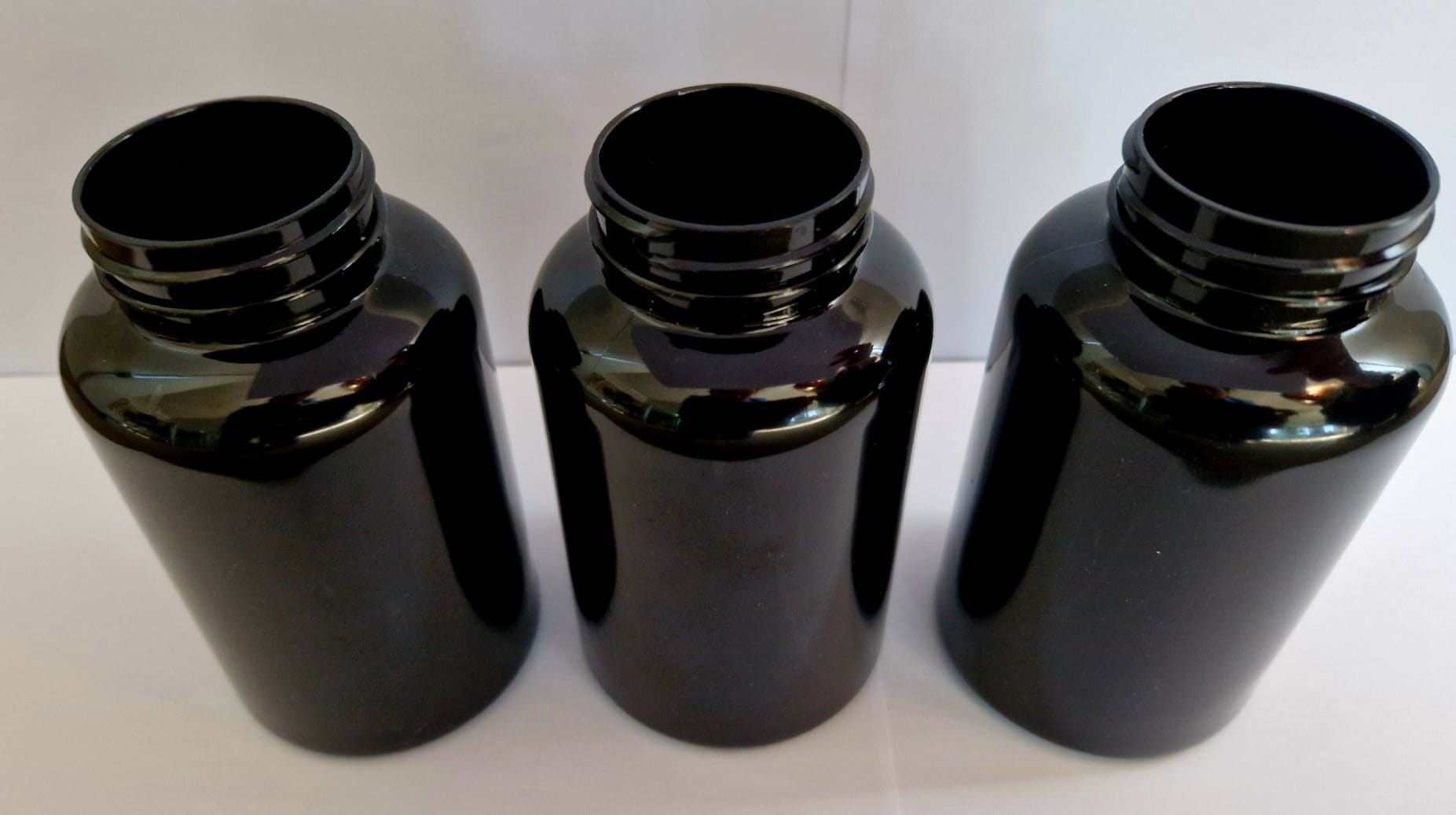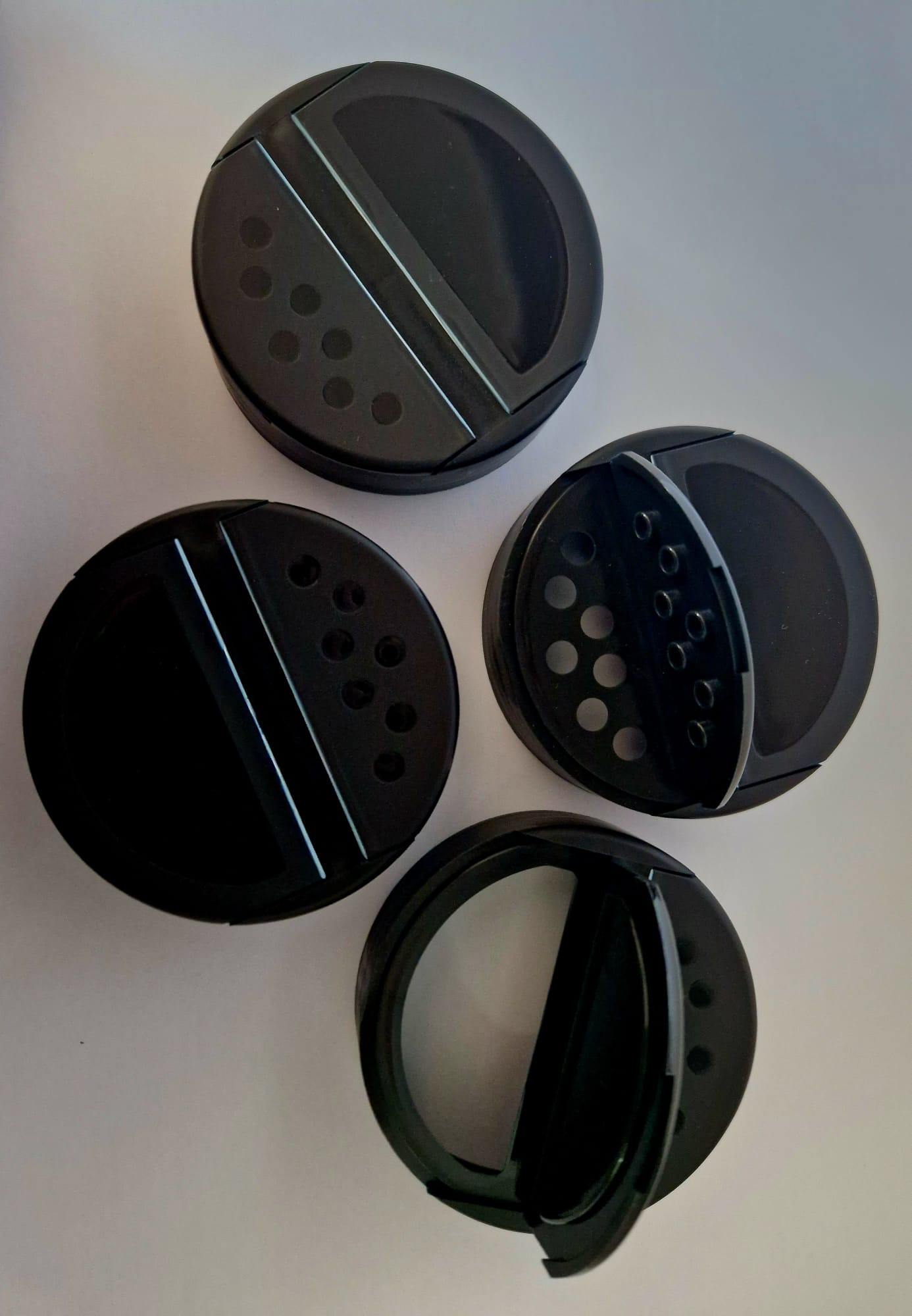PET CONTAINERS AND PLASTIC LIDS COLORED IN BLACK WITH CARBON-FREE MASTERBATCHES
Carbon black is a common coloring agent used in plastic packaging, including PET, PP, HDPE etc. It gives an opaque dark cover, to create an attractive look and a light shield. Not the last reason of its popularity is an affordable price.
 However, carbon black is a problem when it comes to the sorting. Conventional black plastics are difficult to recycle as they cannot be detected by sorting machines, meaning different polymers cannot be separated into the correct streams. The carbon used in the traditional dark colored packaging absorbs most of this NIR-beam. The reflected part of the light does not deliver enough information to the detection unit to determine the type of plastic. Therefore, these packs are classified as “unknown” material. So they will be rejected for incineration or landfill.
However, carbon black is a problem when it comes to the sorting. Conventional black plastics are difficult to recycle as they cannot be detected by sorting machines, meaning different polymers cannot be separated into the correct streams. The carbon used in the traditional dark colored packaging absorbs most of this NIR-beam. The reflected part of the light does not deliver enough information to the detection unit to determine the type of plastic. Therefore, these packs are classified as “unknown” material. So they will be rejected for incineration or landfill.
This had led numerous consumers, including leading retailers, to phase black plastics packaging out, despite their aesthetic appeal.
Facing the challenge, the industry has developed new type of colorants that do not contain carbon and thus, can be sorted by NIR detectors. There is a number of solutions in the market provided by different producers.
However, the devil is in details – there are many nuances in using this or that agent with this or that machines and processes. Extensive tests must precede any claim that a converter is ready to deliver plastic made with a carbon-free black pigment. It must be noted that sometimes, the black is not black – plastic articles colored with carbon-free masterbatches often have greyish or greenish shade.
processes. Extensive tests must precede any claim that a converter is ready to deliver plastic made with a carbon-free black pigment. It must be noted that sometimes, the black is not black – plastic articles colored with carbon-free masterbatches often have greyish or greenish shade.
With the co-operation with Global Colors, one of the leading supplier in the field, Trypet has tested carbon-free colorants in both PET and PP articles.
With the positive results of the said tests, we can duly declare that from now on Trypet can offer carbon-free black PET jars and bottles as well as black plastic lids.
The colorants are approved for food contact.
Samples are available by request.
